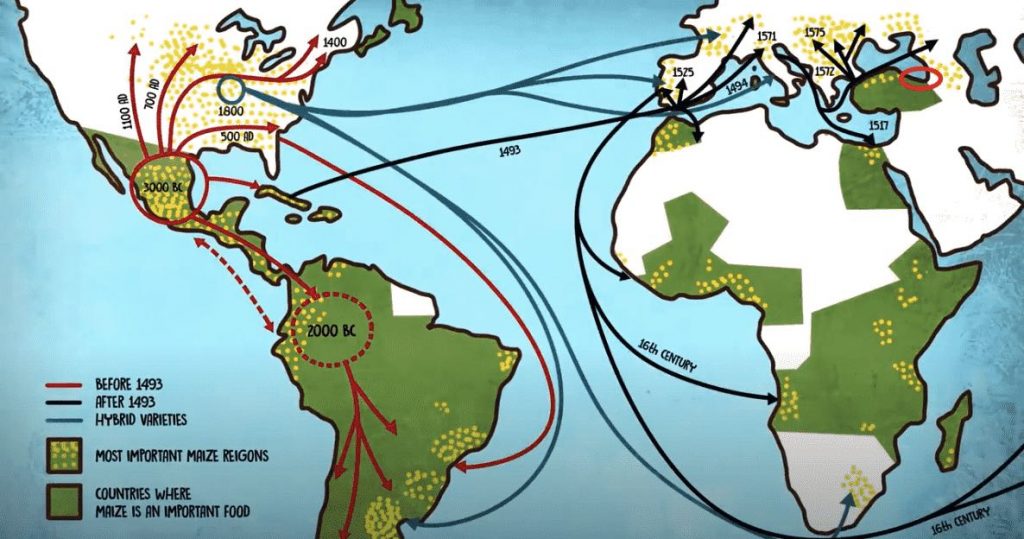The Laz in their own words
Traditional Laz Sayings in the Light of History
- A Smattering of Lazuri
- A Story to Tell
- Also See
Also See: 500 Laz Proverbs | Deal with Dialects


A Smattering of Lazuri
Proverbs are born out of the climate, geography, resources (or the lack of), and the watershed moments that shaped a people (Volk) who speak a common language. Proverbs are non-personal; they could apply to anyone who fits the bill, yet they spotlight no single individual.
I began collecting and translating Laz proverbs in 2018 as part of my Master’s thesis in transnational and spatial history. As part of my research, I visited a number of Laz villages in the borderlands of Turkey and the Republic of Georgia to collect accounts of oral history. Traveling in the traditional Laz homelands, I conducted interviews with Laz people regarding their ethnic identity and language.
During these interviews, Laz proverbs became an essential tool for me to steer the conversation: Me being an outsider, sometimes the villagers would be tight-lipped about their own experience about a potentially controversial issue in Laz culture, such as crypto-religiousness or eloping. Instead of putting my interviewees on the spot, I would simply mention a Laz proverb and ask if they have ever heard of it before.
Fortunately, most of my interviewees were past the age of seventy and very eager to share their bits of elderly wisdom; quickly stating whether they agree or disagree or suggesting an alternative adage they know. By removing the individual’s attachment to a topic, these sayings helped me learn about otherwise personal experiences and opinions.
Moreover, in their succinct form, proverbs carry generations worth of history and tradition. The more I studied the region, the more I was able to see how Laz sayings related to the historical timeline of events in the Black Sea and the Caucasus.
A Story to tell
In this section, you will find a selection of proverbs corresponding to different eras of Laz history. Starting from antiquity, the theme moves on to the Medieval, then to the Age of Discovery, and finally catching up to the Modern times. I kept the discussion brief for brevity’s sake; nonetheless, you may enjoy a broader analysis of my collection of half a thousand Laz proverbs.
As the Lazi are an autochthonous people of the southern Caucasus, a number of Laz proverbs reflect on Lazona, the Laz traditional homeland:
Lazis uğun ar dobadona, muşi Lazona.
The Lazi have one country, their Lazona.
Mapak var, orak mapoba ikips.
The king does not make the kingdom, time does.
Others remember the way of life in the olden days of Lazona, such as those depicting pagan temples made out of stone or holy sites that no longer stand:
Oxvameşi kvaten oxori mo ǩidup.
Do not build a house with the (stolen) stones from the temple.
Azlağuri oxvame, ar şiras jur noğame.
The Azlağa temple, two potential grooms for a widow.
In the Laz lore, the temple of Azlağa is said to be at the top of the Azlağa hill, which is in modern-day Esenkıyı village of Xopa/Hopa in the Artvin province of Turkey.
There are those reminiscent of a more recent -yet no less forgotten- time when the Laz people were wine-drinking Christians; the majority of them as members of the Georgian Orthodox church and some following the Greek Orthodox patriarch.
By the 18th century, most of the Laz speaking people had converted to Islam and remain so to this day. As Islamic law prohibits alcohol consumption, the Laz tradition of wine-making perished in Turkey but a few wineries still function in the southwest of the Republic of Georgia. Nevertheless, the proverb puts forward:
Ğviniş nostoni nunǩus giğunna, qurz’eni dorgaginon.
If you have the taste of wine on your tongue, you are to plant some grapes.
Some proverbs give away their age by mentioning new world crops, namely maize/American corn. Former Ottoman territories like Egypt were rich with cornfields since the 1520s, hence, in Turkish, the word mısır translates to both “Egypt” and “corn”.
Contrastingly, the Tsardom of Russia did not start shipping in maize until the late 16th century. Even though parts of the Ottoman Empire were well accustomed to cultivating corn maize, the Lazi were not.
Among the Laz people, it is common knowledge that their forefathers brought corn over from the Russian Empire, as until the 1920s, it was the norm for Laz men, along with Pontic Greek and Armenian men, to migrate to the Russian Empire for work and send their earnings back to their families in the Kolhics. Despite its new world origins, corn quickly became a staple in the “traditional” Laz diet and hence the proverbs:
Čǩint’ite lazut’iş mkiri var iqven.
One cannot make cornflour out of fresh corn.
Uğnosek mčǩidi imxors, kualiti var uğun.
The fool is eating cornbread, he/she does not have wheat-bread.

Lynn’s note: Traditional Laz homeland: top right circled in red.
Original Map: How Corn Conquered the Word – Chris A Kniesly.
Perhaps most strikingly, the Laz proverbs about language resonate in different periods in Laz history and stay relevant for over centuries. On the one hand, there are those that may be read in a modern context, in reference to the nationalist language policies that the Lazi faced under the rule of early Republican Turkey and Soviet-occupied Georgia:
Rusuli kodigurina, “Rusi vore” ya mo zop̌on.
If you learned Russian, do not say: “I am Russian”.
On the other hand, Laz people’s attachment to their language Lazuri as the primary component of their identity can be read as an ongoing trend from the medieval times onward.
As early as the 15th century, Hellenization challenged Laz language and identity as the Greek Orthodox church, which a considerable number of the Lazi followed, banned the use of Lazuri altogether, and encouraged the use of Greek instead. Gradually, the Greek Orthodox Lazi, no longer Lazuri-speaking, assimilated into Pontic Greeks.
Fast forward four-centuries, the Greek-Turkish population exchange of 1923 compulsorily uprooted those same Lazi out of historical Lazona, on the basis of being Orthodox Christians, and resettled them to their “homeland” in Greece. Timelessly, the Lazi remark:
Nananena gondinina, ti skaniti gondineri giğun.
If you lose your mother-tongue, you lose yourself also.
Also See:
500 Laz Proverbs: a broad analysis and translation of half a thousand Laz proverbs.
sources:
White, Sam. The Climate of Rebellion in the Early Modern Ottoman Empire [New York: Cambridge University Press, 2011]., pp. 285-288.
Feurstein, Wolfgang. “Völker der Kolchis. Aspekte ihrer Mythologie und Möglichkeiten eines Vergleichs” in Caucasologie Et Mythologie Comparee [Paris: Peeters, 1992]. pp. 127-139.
Helpful Links:
1. Laz Dictionary: the default website is in Turkish. Click on the box next to “Kullanım Dili” [Language of Operation] and select English.
2. Lazuri Dersepe: a playlist for The Laz Institute‘s online language classes taught in Turkish by the renowned Laz philologist İsmail Bucaklişi.
3. Lazuri.com: an online Laz culture platform operating in Lazuri and Turkish.